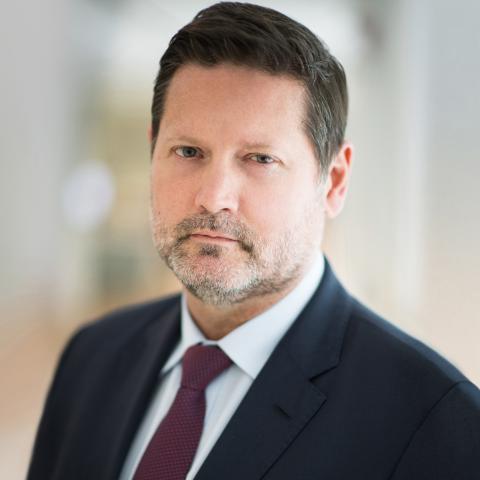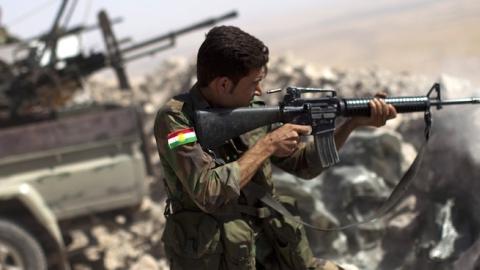Against the background of reports that the so-called Islamic State (IS), or Da’esh, is losing its hold in Iraq and Syria, homeland security experts in the United States and Europe have been quick to note that the threat this group and its followers pose is simply changing its form. One of the main goals of IS--intensifying sectarian conflict between Sunni and Shi’a Muslims--has advanced considerably over the past two years. In a single week, top diplomats from Saudi Arabia and Iran accused one another of sectarianism and terrorism on the opinion pages of The New York Times. In Iraq, which straddles the fault line between these two major sects of Islam, resolving this gathering maelstrom of violence is a key priority not only for the country, but for the region as a whole.
Cities liberated from Da’esh remain in ruins. With the tacit approval of Baghdad, Shiite militias and majority Shiite Iraqi Army and Police units have carried out retributive destruction against Sunni population centers oppressively controlled by ISIS.
Areas of Sunni-majority population--the governorates of Anbar, Ninawa, Diyala, Salah Uddin, and parts of Kirkuk--distrust Baghdad’s ability and willingness to provide security for the Sunni population and reintegrate it into Iraq’s social and political fabric.
The solution may lie in strong regional autonomy for these areas, potentially leading in the long-term to an outright independent state.
This paper looks at a proposed solution to the centrifugal forces tearing Iraq apart. A massive deficit in trust handicaps the Baghdad government today, which an astonishing 75% of Iraqis view as hopelessly corrupt. Even as some of the territory lost to Da’esh since 2014 returns to Baghdad’s control, the same searing question persists about whether the Shi’a-dominated government, under considerable sway of Tehran, can co-exist with Sunni Arabs. Until 2003, they comprised much of the Iraqi elite, but today they complain of second-class treatment.
What will come of Fallujah now that Da’esh has been driven out? Will its local population suffer punishment for allowing the occupation? The same question is even more pressing for Mosul, as talk of a major effort to “liberate” the city from Da’esh mounts. Why, in the summer of 2014, did Mosul fall so quickly and easily? Time and again, Iraqi Sunni Arabs have, over the past 13 years, felt disenfranchised from their own country. Does a realistic path exist for their re-integration? Or does a civilized and segmented separation make the most sense for all sides in this continuing conflict? The Sunni population has been politically ostracized and will need a new political compact to govern their territory. The politicians elected to serve these communities have acted opportunistically and against the interests of their constituents. A potential West Iraq would necessarily reject sectarian lines and provide an inclusive framework. A system must be set up that does not marginalize the minority populations, but rather addresses their interests in a secular manner, based on interest rather than ideology.
In 2006, then-Chairman of the U.S. Senate Foreign Relations Committee Joe Biden released a plan for the partition of Iraq into three segments: Sunni, Kurd, and Shi’a regions. The Biden plan came at a moment when sectarian tensions were spiraling, but the Bush Administration chose another path: a surge aimed at stomping out the sectarian forces then at play. Ten years later, the U.S. military has withdrawn from Iraq. No current surge is likely. Nor is it being seriously considered by either major U.S. presidential candidate. Considering the current facts on the ground, a different solution may be more practical for the moment. Could movement toward autonomy by the three groups eyed in the Biden plan make more sense today?
We look at key considerations of this question in terms of politics, economics, and security. In this paper we look at what the ends of such a policy shift could be, current interest on the ground in finding a new political solution, and whether the economic basis is there for a “statelet” in West Iraq. We also consider the key element of security, which is perhaps the most pressing issue to be considered.
To read the full study, press the green "View PDF" button, below.


















